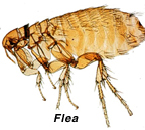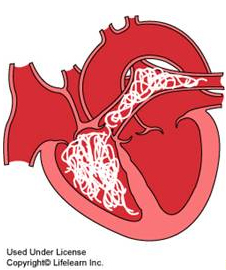 At Oconomowoc Animal Hospital we take your pet’s health very seriously. A large part of having a healthy pet is to provide preventive care. This includes, but is not limited to, yearly exams to assess your pet’s: body condition, weight, heart, lungs, abdomen, skin, joints, mouth, eyes and ears. We also discuss the importance of vaccines, diet, year-round heartworm and/or intestinal parasite prevention, year-round external parasite prevention, behavior and yearly bloodwork.
At Oconomowoc Animal Hospital we take your pet’s health very seriously. A large part of having a healthy pet is to provide preventive care. This includes, but is not limited to, yearly exams to assess your pet’s: body condition, weight, heart, lungs, abdomen, skin, joints, mouth, eyes and ears. We also discuss the importance of vaccines, diet, year-round heartworm and/or intestinal parasite prevention, year-round external parasite prevention, behavior and yearly bloodwork.
Vaccines are important in keeping your pets healthy and a rabies vaccine for dogs is required by law. The bordetella vaccine, which protects your dog from canine tracheal bronchitis is highly recommended for all dogs. Your pet can contract canine tracheal bronchitis, or canine cough, by coming in to nose-to-nose contact with other dogs. Even if you are not regulars at the dog park, your dog can still contract canine cough at the grooming parlor, on walks or even coming into the veterinary clinic. We highly recommend a rabies vaccine for your cat–even if they don’t go outside. Cats can have a tendency to nip and bite. If your cat is up-to-date on their rabies vaccine, there is much less hassle if a human doctor visit is in order.
Year round heartworm prevention is important–even in a state like Wisconsin. Some people may not know that your heartworm prevention pill is also a monthly dewormer. Some of the parasites heartworm pills protect against are zoonotic, which means they can be passed on to people. Children and people with immune disorders are at a higher risk to contract these parasites.
 Year round flea and tick prevention is also very important. Both dogs and cats are susceptible to fleas, even if your cat doesn’t go outside. Fleas can’t live on humans, but they can bite you, which can be irritating. They are also very annoying to your pet. Many animals are allergic to flea saliva, which causes a severe itch. Fleas can also cause anemia (decreased blood) in animals that are very infested. Your dog or cat can ingest a flea which scratching or grooming and develop tapeworms. Tapeworm segments can be seen in your pet’s stool, on the hair around the anus and on your furniture. The segments move and can also be very itchy and irritating to your pet’s rear end! Ticks are another external parasite we commonly see in Wisconsin. They carry diseases like Lyme Disease, Anaplasmosis and Ehrlichia (see below).
Year round flea and tick prevention is also very important. Both dogs and cats are susceptible to fleas, even if your cat doesn’t go outside. Fleas can’t live on humans, but they can bite you, which can be irritating. They are also very annoying to your pet. Many animals are allergic to flea saliva, which causes a severe itch. Fleas can also cause anemia (decreased blood) in animals that are very infested. Your dog or cat can ingest a flea which scratching or grooming and develop tapeworms. Tapeworm segments can be seen in your pet’s stool, on the hair around the anus and on your furniture. The segments move and can also be very itchy and irritating to your pet’s rear end! Ticks are another external parasite we commonly see in Wisconsin. They carry diseases like Lyme Disease, Anaplasmosis and Ehrlichia (see below).
 Heartworm disease is spread by mosquitos and is still very common in our wild dog population (coyotes, wolves and fox). A mosquito bites an infected dog and then bites your dog, which spreads the disease. Heartworm disease is very dangerous for your dog as hundreds of large worms live in your dog’s heart, causing muscle thickening, anemia and disease. Heartworm disease is very expensive and can be dangerous to treat, but it can be easily prevented for just a few dollars a month with a heartworm prevention tablet.
Heartworm disease is spread by mosquitos and is still very common in our wild dog population (coyotes, wolves and fox). A mosquito bites an infected dog and then bites your dog, which spreads the disease. Heartworm disease is very dangerous for your dog as hundreds of large worms live in your dog’s heart, causing muscle thickening, anemia and disease. Heartworm disease is very expensive and can be dangerous to treat, but it can be easily prevented for just a few dollars a month with a heartworm prevention tablet.
Ticks carry several diseases that can make animals sick. Lyme disease can cause renal (kidney) failure, polyarthritis (lameness) and flu-like symptoms. Anaplasmosis causes thrombocytopenia (low platelet count–which affects blood clotting time) and flu-like symptoms. Ehrlichia can cause anemia (a reduced amount of red blood cells), changes to white blood cells, thrombocytopenia (low platelet counts), abnormal bleeding and uveitis (inflammation in the eyes). Ticks are very hearty creatures that don’t die in the winter–they simply crystallize. If it gets just a few degrees above freezing (34 degrees or warmer!), the ticks thaw and look for a warm meal. A topical tick preventative can help prevent these diseases. Many dogs that contract a tick-borne disease never leave their backyard!
Yearly bloodwork is very important in helping our veterinarians assess your pet’s health. This can include a heartworm/tick disease test, complete blood count, chemistry panel, and urinalysis. A complete blood count is important to your veterinarian. It gives her information such as your pet’s hydration status, white blood cell count, red blood cell count and platelet count. A chemistry panel helps us assess your pet’s internal organ function. It gives us information about your pet’s liver and kidney health. It can also help us rule out hypothyroidism (in dogs) or hyperthyroidism (in cats). An elevated calcium can occasionally be an indication of cancer. Your pet’s blood glucose level can tell us whether your pet has developed diabetes.
A routine urinalysis can help us determine several things. It can show us how well your pet’s kidneys are working by the way the urine is concentrated. Animals that are developing early renal (kidney) disease start spilling protein into their urine. We can also assess the urine for crystals or bacteria. Some pets walk around for weeks with urinary tract infections and their owners never know!
An exam with a veterinarian at Oconomowoc Animal Hospital can also give pet owners a chance to talk about any behavior problems their pet may be having. Maybe your cat is urinating outside the box or your dog is terrified of thunderstorms. Our veterinarians and technicians can work with you to come up with some behavior modification techniques and rule out any health issues which may be an underlying issue for the unwanted behavior and/or prescribe medications.



